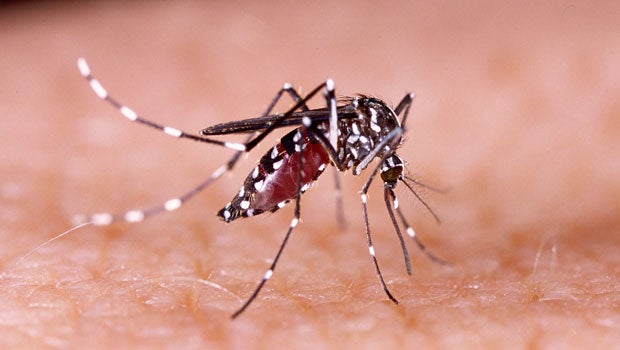
A new research programme fronted by Duke-NUS and NUS will investigate the mosquito saliva to find way to stop transmission of the deadly disease.
When a dengue-carrying Aedes aegypti mosquito feeds on blood, the dengue virus is passed on to the human through its saliva. This is why a team of researchers in Singapore are now studying how to make the body resistant to the insect’s saliva, so that diseases like dengue cannot be spread efficiently.
Fronted by Duke-NUS and the National University of Singapore (NUS), this $10 million research programme will also look at factors affecting virus transmission as well as what makes certain mosquitoes better vectors, among other areas.
Professor Ooi Eng Eong, Deputy Director of the Emerging Infectious Diseases Programme at Duke-NUS Medical School (Duke-NUS) is one of the team’s principal investigators. He said that there is already some evidence to show that mosquito saliva contents may play a role in enhancing the efficiency of virus infection, though exactly which component of the saliva that does this is unknown.
"It is thought that some of these proteins may modulate our early immune responses to the virus, enabling it to infect and then spread more efficiently," said Prof Ooi.
Around the world, there are efforts to develop vaccine against the four different strains of dengue. The Government has also announced that it would commence a field study involving release of male Wolbachia–carrying mosquitos (infected with a bacteria that will make mosquito eggs fail to hatch) to curb the Aedes aegypti population.
However, new ways of tackling dengue are sorely needed. Authorities have warned that the number of dengue cases this year may exceed 30,000 – higher than the record in 2013, when 22,170 cases were reported.
Prof Ooi said, "Multiple but complementary methods must be urgently explored or developed to control dengue, including the use of Wolbachia, vaccines and antiviral drugs."
This latest programme also involves researchers from the Singapore-MIT Alliance for Research and Technology, the Agency for Science, Technology and Research (A*Star) and Oxford University, among others.
Source: The Straits Times, Singapore Press Holdings Limited.
Get the Health Buddy App
© 2025 SingHealth Group. All Rights Reserved.













 Get it on Google Play
Get it on Google Play